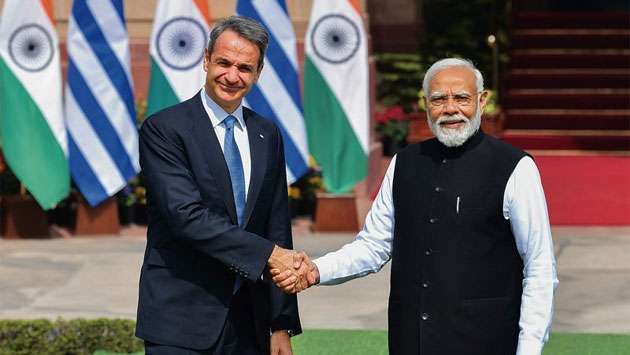New Delhi’s foray into the European market will be more prominent as both India and Greece see the opening of the India-Middle East-Europe Economic Corridor (IMEEC) as a way to strengthen ties between the two countries.
The IMEEC was first announced at the G20 Leaders’ Summit in New Delhi in September 2023.
The project aims to connect India with the Gulf and Europe through two strategic corridors – the Eastern Corridor connecting India to the Gulf and the Northern Corridor connecting the Gulf to Europe, enhancing trade routes and economic integration across the continents.
In the recent meeting between External Affairs Minister S. Jaishankar and his Greek counterpart George Gerapetritis (February 5-7), both India and Greece shared the view that the IMEEC “will further strengthen the relationship.”
Issuing a statement on Gerapetritis’ visit today, the Ministry of External Affairs (MEA) said, “The Ministers exchanged views on regional and global developments, including in the Indo-Pacific and Eastern Mediterranean regions. They also shared the view that the India-Middle East-Europe Economic Corridor will further strengthen the relationship.”
Both Jaishankar and Gerapetraitis reaffirmed their commitment to “international law, in particular the United Nations Convention on the Law of the Sea (UNCLOS),” a set of rules that governs all uses of the oceans and their resources between countries.
Greece is important to India in the IMEEC as it is located in Europe, making it a crucial gateway for India to the European market. In addition, the country’s ports, mainly Piraeus, can serve as key entry points for Indian goods bound for Europe. This strategic location allows for faster and more efficient transport of goods compared to traditional sea routes, thereby reducing transport costs and transit times.



